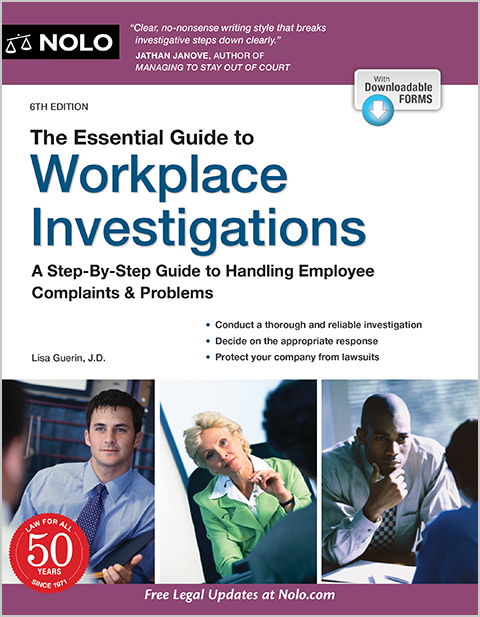To sue a cop, gather evidence of wrongdoing and consult with a lawyer before filing a lawsuit.

Credit: store.nolo.com
Understanding Your Rights
Facing an unjust incident involving law enforcement can be a daunting and stressful experience. However, understanding your rights is crucial to ensuring justice prevails. This section will explore elements such as knowing your constitutional rights and understanding police misconduct.
Knowing The Constitution
We are fortunate to live in a society where individual rights are constitutionally protected. Understanding your constitutional rights when dealing with law enforcement can help you navigate potential misconduct situations. The following fundamental constitutional rights are important to be aware of:
- The Fourth Amendment: This amendment protects you against unreasonable searches and seizures. It ensures that you have the right to privacy in your belongings, property, and even your own body. If a police officer violates this right, it may constitute misconduct.
- The Fifth Amendment: This amendment grants you the right to remain silent and not incriminate yourself. If you are under arrest or facing interrogation, remember that you have the option to exercise this right. It is crucial to consult with an attorney before speaking to law enforcement.
- The Sixth Amendment: This amendment guarantees your right to a fair trial. If you are involved in a legal proceeding, you have the right to legal representation, the right to confront witnesses, and the right to a speedy trial. Any violation of these rights by a police officer should be taken seriously.
- The Fourteenth Amendment: This amendment ensures equal protection under the law. It prohibits law enforcement from engaging in discriminatory practices based on race, ethnicity, or any other protected characteristic. If you believe you have been the victim of such discrimination, it is important to gather evidence and seek legal advice.
Understanding Police Misconduct
Police misconduct refers to any illegal or unethical behavior committed by law enforcement officers while carrying out their duties. Being aware of the various types of police misconduct can help you recognize and address these issues. Common forms of police misconduct include:
- Excessive Force: This occurs when a law enforcement officer uses more force than necessary to subdue a suspect. It can result in injuries or even death. If you have been a victim of excessive force, gathering evidence such as witness statements or videos can be crucial in pursuing legal action.
- False Arrest: A false arrest happens when a police officer detains or arrests an individual without reasonable suspicion or probable cause. If you believe you have been unlawfully arrested, seeking legal advice immediately is essential.
- Police Brutality: This encompasses a range of aggressive and abusive behaviors by law enforcement officers, such as physical assaults, verbal abuse, or intimidation. If you have experienced police brutality, documenting injuries and filing a complaint with the appropriate authorities is crucial.
- Unlawful Search and Seizure: If law enforcement conducts a search without a valid warrant or probable cause, it may be an unlawful search and seizure. Remember that you have the right to withhold consent for a search unless law enforcement is able to provide a legal basis for conducting one.
Understanding your rights and familiarizing yourself with common forms of police misconduct empowers you to take action when necessary. It is essential to remain calm and composed during encounters with law enforcement and seek legal counsel as soon as possible in order to protect your rights and seek justice.

Credit: dawsonlawfirm.com
Documenting Police Misconduct
When it comes to seeking justice and holding police officers accountable, documenting incidents of police misconduct is crucial. Properly gathering evidence and meticulously recording your interactions with the police can significantly strengthen your case. In this article, we will discuss two essential aspects of documenting police misconduct: Gathering Evidence and Recording Police Interactions.
Gathering Evidence
When preparing to sue a police officer for misconduct, gathering evidence is essential to support your claims. Here are some crucial steps to follow:
- Collect all relevant documentation, including incident reports, police reports, and any written communication from law enforcement authorities.
- Compile any video recordings, photographs, or audio recordings that capture the incident or interactions with the police. Ensure that these recordings are clear and of high quality.
- Obtain the contact information of any witnesses present during the incident. They may provide valuable testimony to support your case.
Recording Police Interactions
Recording your interactions with the police can serve as powerful evidence when demonstrating wrongdoing or misconduct. Below are some important tips to consider:
- Ensure that your recording device is discreet, such as a smartphone or body camera, to avoid drawing unnecessary attention.
- Be aware of your local laws regarding recording conversations. In some jurisdictions, you may need the consent of all parties involved, while others permit one-party consent.
- When recording, capture both audio and video whenever possible. This will provide a comprehensive record of the incident.
- Clearly state the date, time, and location at the beginning of the recording to establish the context.
- Remain calm and composed during the interaction. Your objective is to gather evidence, not provoke further conflict.
By diligently gathering evidence and recording police interactions, you can help substantiate your claims of police misconduct. However, it’s essential to consult with an experienced attorney to ensure you follow all necessary legal processes and navigate the complexities of suing a police officer.
Filing A Complaint
Filing a complaint against a police officer can be a daunting and complex process, but taking action is essential if you have experienced misconduct or abuse of power. By following the necessary steps and understanding the proper channels, you can hold law enforcement accountable for their actions. This section will guide you through the process of filing a complaint against a police officer, ensuring that your voice is heard and your concerns are addressed.
Before filing a complaint, it is crucial to determine the appropriate authorities responsible for handling misconduct cases within the police department or agency. In most cases, this falls under the jurisdiction of the internal affairs division or the professional standards unit.
To find the correct department, start by visiting the official website of the police agency involved. Look for the “Internal Affairs” or “Professional Standards” section, which often provides detailed instructions on how to file a complaint. If you are unable to find this information online, you can call the non-emergency hotline of the police department and ask for guidance. They should be able to direct you to the appropriate authorities.
Once you have identified the correct department, the next step is to fill out the complaint form. This document is designed to gather essential information about the incident and your experience. Make sure to complete the form accurately, providing as much detail as possible. This will help the authorities understand the nature of your complaint and investigate it thoroughly.
The complaint form generally requires information such as your name, contact details, date, time, and location of the incident. Be sure to include the officer’s name and badge number, if known, and provide a clear and concise description of what took place. Remember to mention any witnesses or evidence that may support your claim.
When filling out the form, it is crucial to use clear and concise language. Stick to the facts and avoid exaggerations or assumptions. Present the information in a logical and organized manner, emphasizing the impact the incident had on you emotionally, physically, or psychologically.
After completing the complaint form, carefully review it to ensure accuracy and consistency. Typos or inaccuracies may undermine the credibility of your complaint. Provide any supporting documents, such as photographs, videos, or medical records, if available. These materials can strengthen your case and provide additional evidence for the investigation.
Once you are satisfied with the accuracy of your complaint form, follow the instructions provided by the department to submit it. Some agencies allow online submissions, while others may require you to mail or deliver the form in person. Make sure to keep a copy of the completed form for your records.
Hiring An Attorney
Looking for guidance on how to sue a cop? Hiring an attorney can provide the expertise and support needed to navigate the legal process and seek justice for any wrongdoing. Choose a reliable attorney to ensure your rights are protected.
Finding A Specialized Attorney
When it comes to suing a police officer, finding an experienced attorney who specializes in civil rights cases is crucial. Not all attorneys have the same level of expertise in handling cases against law enforcement officers. Therefore, it is essential to find a lawyer who is well-versed in this specific area of the law.Assessing Experience And Track Record
Assessing a potential attorney’s experience and track record is an important step in hiring the right legal representation. You want to ensure that the attorney you choose has a history of successfully handling cases similar to yours. This will give you confidence that they have the necessary skills and knowledge to navigate the complexities of suing a police officer. Here are a few factors to consider when assessing an attorney’s experience and track record:- Years of Experience: Look for an attorney with a substantial amount of experience in handling civil rights cases against law enforcement. This experience can demonstrate their familiarity with the legal landscape and the tactics commonly employed by police officers and their defense teams.
- Case Results: Take a close look at the attorney’s track record of previous cases. Did they secure favorable outcomes for their clients? Were they able to obtain substantial settlements or jury verdicts? A lawyer with a proven track record of success is more likely to be effective in advocating for your rights.
- Client Testimonials: Reading testimonials and reviews from previous clients can provide insights into the attorney’s professionalism, communication skills, and dedication to their clients. Positive testimonials can reinforce your confidence in their abilities.
Navigating The Legal Process
When you find yourself in the unfortunate situation of needing to sue a cop, understanding the legal process can greatly improve your chances of success. Navigating the complex world of legal proceedings can be overwhelming, but with the right knowledge and preparation, you can effectively present your case. In this section, we will explore the key steps you need to take to navigate the legal process when suing a cop.
Preparing For Your Case
Before considering legal action against a police officer, it is essential to gather and organize all the necessary information and documents to strengthen your case. Follow these steps to ensure you are well-prepared:
- Create a detailed timeline of events: Document every interaction and incident with the police officer, including dates, times, locations, and any witnesses present.
- Gather evidence: Collect any relevant evidence, such as photographs, videos, audio recordings, or written statements that support your claims.
- Obtain official records: Request copies of police reports, arrest records, body camera footage, dash camera footage, or any other official documentation related to your case.
- Consult an attorney: Seek legal advice from a qualified attorney who specializes in civil rights and police misconduct cases. They can guide you through the legal process, assess the strength of your case, and provide valuable insights.
- Understand the local laws: Research the specific laws and regulations that govern police conduct and your right to sue a cop in your jurisdiction. This will help you understand the legal standards and requirements you need to meet.
Presenting Your Evidence
Once you have gathered all the necessary information and prepared your case, presenting your evidence effectively is crucial to building a strong argument against the police officer. Follow these steps to effectively present your evidence:
- Organize and categorize your evidence: Compile all your evidence in a clear and organized manner. Group similar pieces of evidence together and label them accordingly.
- Create a concise summary: Write a brief summary of your case, highlighting the key points and evidence that support your claims. This will help you stay focused and ensure you cover all essential aspects during legal proceedings.
- Prepare witnesses, if any: If you have witnesses who can testify in support of your claims, ensure they are well-prepared and knowledgeable about the events they witnessed. Provide them with an overview of the questions they may be asked during the trial.
- Present your evidence confidently: During the trial or legal proceedings, clearly and confidently present your evidence to the court. Stay calm and composed while explaining the relevance and importance of each piece of evidence.
- Rebut opposing arguments: Be prepared to counter any arguments or claims made by the defense. Anticipate possible objections and have strong rebuttals ready to defend your case.
- Follow court procedures: Familiarize yourself with the specific court procedures and rules that apply to your case. Adhere to these rules to maintain a professional and credible image throughout the legal process.
Navigating the legal process when suing a cop can be challenging, but thorough preparation and effective presentation of your evidence can significantly strengthen your case. By following these steps, you will be well-equipped to face the legal proceedings confidently and fight for justice.

Credit: www.shemmassianconsulting.com
Frequently Asked Questions For How To Sue A Cop
Can I Sue A Police Officer For Misconduct?
Yes, you can sue a police officer for misconduct. If you’ve experienced a violation of your civil rights or have been mistreated by an officer, you have the right to seek justice through a lawsuit. Consult with an attorney who specializes in civil rights cases to explore your options.
What Do I Need To Sue A Police Officer?
To sue a police officer, you’ll need evidence that supports your claim, such as photographs, videos, witness statements, or medical records. It’s crucial to document any instances of misconduct or civil rights violations from the officer. Hiring a skilled attorney will help you gather the necessary evidence and navigate the legal process.
How Long Do I Have To Sue A Police Officer?
The statute of limitations to sue a police officer varies depending on the jurisdiction and the type of claim. Generally, it’s best to take legal action as soon as possible since delays can impact your case. Consult with an attorney to determine the specific time limitations for your situation.
What Compensation Can I Seek When Suing A Police Officer?
When suing a police officer, you can seek various forms of compensation, including but not limited to medical expenses, pain and suffering, emotional distress, loss of income or earning capacity, and punitive damages. An experienced attorney will assess your case and advise you on the appropriate compensation to pursue.
Conclusion
To sum up, filing a lawsuit against a police officer can be a complex and challenging process. However, by following the necessary steps, such as gathering evidence, hiring a competent attorney, and navigating the legal system, you can seek justice for any misconduct or violation of your rights.
It’s crucial to approach this situation with determination and patience, ensuring that your case is thoroughly prepared. Remember, holding law enforcement accountable is essential for upholding justice and protecting individual rights.
- The Power of Mobile Accessibility And Real-Time Tracking for Trucking Operations - November 6, 2024
- Why Ease of Use is Crucial in Trucking Dispatch Software - September 22, 2024
- Better Communication With Dispatchers: How Trucking Dispatch Software Can Optimize Operations - September 7, 2024


